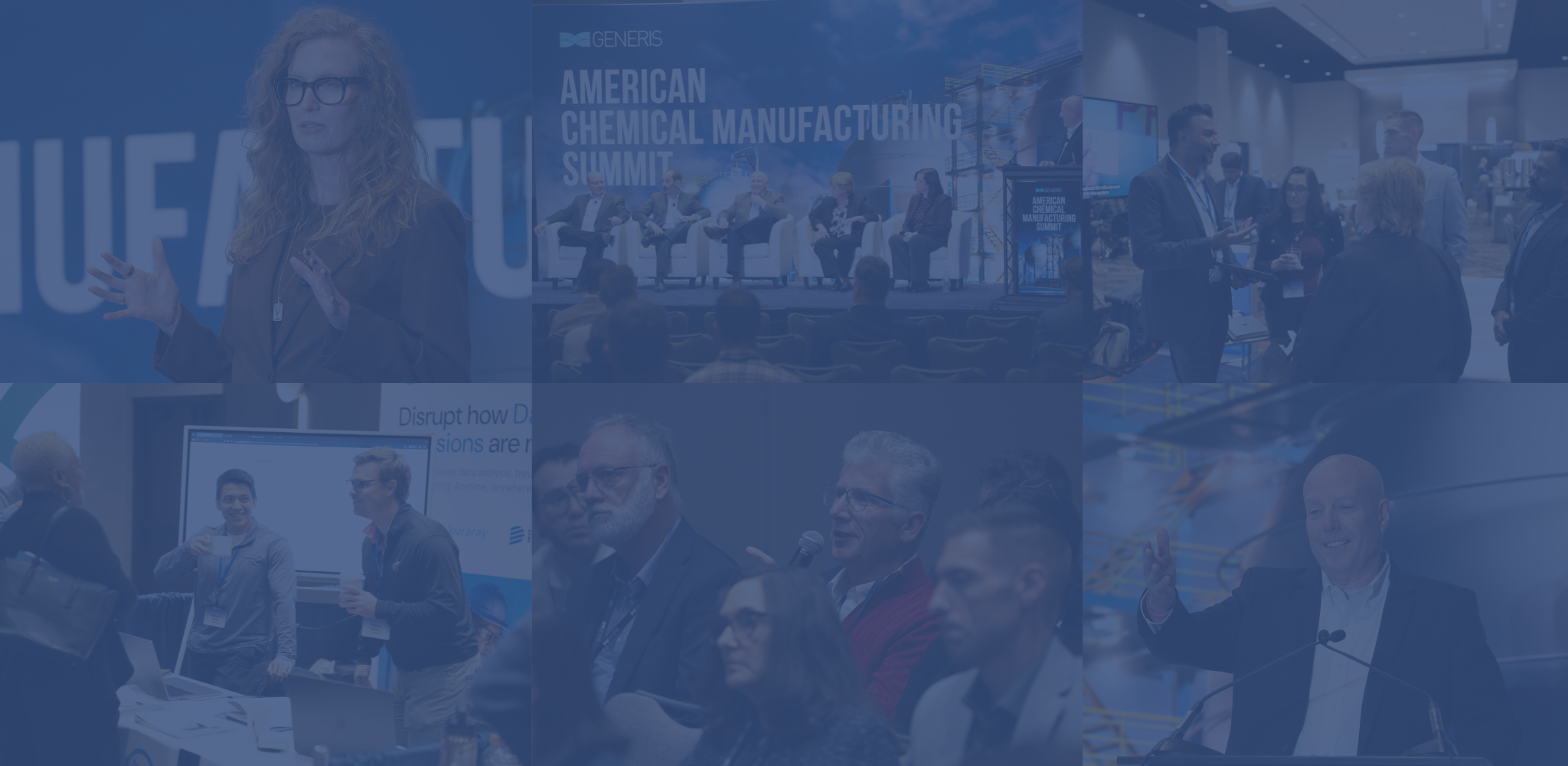Introduction
As the U.S. chemical manufacturing sector navigates an increasingly complex regulatory landscape, voices like Kimberly Wise White’s are helping to shape the path forward. Serving as Vice President of Regulatory and Scientific Affairs at the American Chemistry Council (ACC), Kimberly brings deep expertise at the intersection of science, policy, and industry impact.
At this year’s American Chemical Manufacturing Summit, taking place December 9–10, 2025, at the JW Marriott Houston by the Galleria, Kimberly will deliver a timely and thought-provoking session on how science-based policy and regulatory reform can drive innovation, strengthen supply chains, and secure America’s global competitiveness in chemical manufacturing.
Ahead of the summit, we had the opportunity to gain exclusive pre-event insight from Kimberly, who shared her perspectives on regulatory challenges, TSCA implementation, and what it will take to ensure U.S. leadership in sustainable and resilient chemical manufacturing!
Here’s what she had to say.
Can you give us a preview of what you’ll be speaking about at the American Chemical Manufacturing Summit?
My session will zero in on how the United States can drive innovation and resiliency through science-based policy and regulatory reform.
I’ll review the impact that TSCA reform has on chemical safety regulations and industry compliance challenges; highlight the importance of predictable, science-based policies to foster innovation and investment; and discuss how tariffs and trade policies influence chemical manufacturing and global market competitiveness.
Dr. White speaking to attendees at ACC's 38th annual Global Chemicals Regulations Conference and Exhibition (GlobalChem) in Washington, D.C.
How has TSCA reform changed the regulatory landscape for chemical safety in the United States?
The passage of the bipartisan 2016 amendments to TSCA was a watershed moment. It was the first significant reform to any environmental law in over 20 years.
However, since then, new chemistries have faced regulatory barriers under EPA’s implementation of the TSCA New Chemicals Program—barriers that impact the timing of reviews and availability of products, creating uncertainty in the supply chain and stifling the ability of companies to bring new products to market.
To meet the growing demand for innovative chemistries and to grow chemical manufacturing here in America, companies need timely and predictable new chemical reviews based on the best available science and information.
Why are predictable, science-based policies so essential for fostering innovation and long-term industry investment?
We’ve already seen in 2025 how unprecedented uncertainty can disrupt the global business environment. Businesses have faced higher costs for imported goods, and supply chains have been interrupted. Pervasive uncertainty about trade policy and its potential impact has slowed economic activity in the U.S. and abroad. The lack of clarity makes it difficult for firms to make decisions, and as a result, orders, investments, and hiring get delayed, as many firms adopt a “wait and see” position.
Still, with its unmatched energy advantage and deep-rooted culture of innovation, the U.S. chemical industry is pivotal for driving the President’s ‘America First’ vision for revitalizing domestic manufacturing.
What are some of the key regulatory challenges U.S. chemical manufacturers are currently facing?
One of the biggest problems we are facing is the rising backlog of new chemicals under review at the EPA. By statute, the Agency is mandated to complete reviews of new chemical submissions within 90 days. Currently, nine out of ten new chemicals under TSCA review are delayed, with approval times sometimes stretching up to six years—far longer than the three to six months seen in other nations. This glacial pace stifles innovation and forces companies to look overseas to bring new technologies to the market. Getting TSCA on track will help support the investment and R&D our country needs to stay ahead of our global competitors.
How do science and policy intersect in your work at the American Chemistry Council?
Dr. White speaking with Axios publisher Nicholas Johnston during an April 2023 conversation with community leaders in Baton Rouge, Louisiana.
"Science is the backbone of innovation, and we believe it should also drive policy decisions at all levels of government!"
The industry invested $12.7 billion in 2023 in research and development towards products and technologies of chemistry that help make our lives healthier, safer, and more productive. Our Long-Range Research Initiative has invested in science essential for understanding the safety of chemicals for human health and the environment. The domestic chemical manufacturing industry has and can continue to advance approaches that improve risk-based decision-making. Likewise, sound science should drive sound policy.
In your view, how does domestic chemical production contribute to U.S. supply chain resiliency and economic growth?
With a presence on six continents and nearly $4 trillion in global chemicals trade, the industry has spent decades investing in globally integrated supply chains that reduce manufacturing costs and create jobs. Chemical manufacturing is at the headwaters of the economy, which means disruptions to chemical production can cascade through the supply chain and harm the broader economy. If our goal is to manufacture more here in America and compete with China and other countries, we have to fix the supply chain and make it stronger than ever. Chemistry has a big role to play.
Dr. White at the 2nd HBCU Week College Fair at Walt Disney World
How have recent tariffs and shifts in trade policy influenced U.S. chemical manufacturing and global competitiveness?
The immense benefits of globally integrated supply chains can only be realized when trading costs are low. Tariffs and other trade barriers can dismantle decades of supply chain integration, hurt U.S. manufacturing competitiveness, and reduce demand for U.S. products overseas. Several trade tools exist that can help address America’s supply chain vulnerabilities, incentivize innovation, and inject new growth into our industry. That includes new, pro-growth trade measures that are geared toward expanding access to foreign markets and making it easier for U.S. manufacturers to source key materials from trading partners.
Dr. White speaking to government representatives and chemical industry stakeholders at ACC’s annual GlobalChem Conference and Exhibition in Washington, D.C.
Where do you see the greatest opportunity to align regulatory reform with sustainability and innovation goals?
When we talk about our sustainability priorities, the focus often centers on environmental and societal benefits – reducing greenhouse gas emissions, protecting air and water quality, manufacturing safer products, and minimizing waste. These are critical goals. But sustainability is not just about protecting human health and the environment. Sustainability is a smart business strategy – a key component of a company’s game plan for business resilience and financial success.
Regulations should continue to incentivize slashing energy consumption, curbing emissions, and streamlining operations to conserve water and reduce waste so that companies can drive efficiency, reduce costs, and strengthen their competitive edge.
What policy changes or initiatives are most urgently needed to ensure continued U.S. leadership in chemical innovation?
We need a holistic, comprehensive approach to chemical regulations across the United States. ACC is alarmed by the trend toward banning certain chemistries – even when they can be manufactured and used safely – or regulating them to such a low level that it results in de facto bans. A number of these chemistries are critical to our national security and economy. We need them to manufacture semiconductors, automobiles, and military equipment here in the U.S. to protect our supply chain. This is about getting innovative materials and products to market efficiently and safely. If American companies can’t do that in the U.S., they will inevitably look elsewhere.
What are you most looking forward to at this year’s summit?
I’m looking forward to hearing others’ valuable insights and networking with industry peers, government officials, and academicians attending, who are all deeply invested in the future of chemical manufacturing. This will be a valuable forum to gain a deeper understanding of the evolving regulatory environment.
Dr. White speaking with Axios in Baton Rouge, LA
Conclusion
Kimberly Wise White’s insights underscore a critical truth: the future of U.S. chemical manufacturing depends on smart, science-based policymaking that supports both innovation and sustainability. As global pressures mount and regulatory uncertainty grows, industry leaders must come together to shape a path that is strategic, transparent, and grounded in science.
Don’t miss your chance to hear directly from Kimberly and other top decision-makers at the 2025 American Chemical Manufacturing Summit—where policy, innovation, and leadership converge to define the next era of chemical industry excellence.
%20(1).png?width=773&height=112&name=Generis%20Logo%20full%20Colour%20(Large)%20(1).png)






.png)
-2.png)
